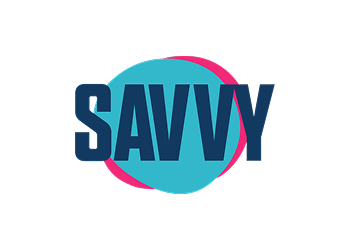Why Recruitment Agencies Need to Act Fast About Generative Engine Optimisation (GEO)
Search is changing. Fast.
For years, recruitment businesses have relied on traditional SEO to help them get found online. But as tools like ChatGPT, Google’s Gemini and Perplexity become part of everyday life, the way people search for information, and the way they find your agency, is shifting.
That’s where Generative Engine Optimisation (GEO) comes in.
Instead of focusing solely on getting your website to appear in the familiar Google rankings, GEO is about making sure your brand shows up in the answers provided directly by AI-powered search engines. In other words, when someone asks, “How much do recruitment agencies charge?” or “What’s the average time to hire in tech?”, you want your agency’s content to be the source those tools use to build their response.
And for recruitment businesses, that’s a differentiator and a potential game-changer.
Does GEO Really Matter for Recruitment?
Think about how clients and candidates behave today. They want instant answers. They’re not scrolling through endless search results, they’re asking AI tools questions and trusting the answers.
If your agency’s insights, blogs, or salary guides are included in those AI-generated summaries, you’re putting your brand in front of people earlier and in a more authoritative way. Before they’ve even clicked a link, they’ve seen your name and expertise. That builds trust, and in recruitment, trust is everything.
It also makes your content work harder. You’re probably already producing blogs, market updates and advice pieces. By optimising them for GEO, you extend their reach and give them a new lease of life, not just showing up in Google search, but being pulled into AI-generated answers too.
So, Where Do I Start?!
The good news? You don’t need to rip up your content strategy and start again. Instead, think about GEO as the next evolution of what you’re already doing.
Start by looking at the questions your clients and candidates actually ask you. These are your GEO opportunities. Then, make sure your content answers those questions clearly, directly, and in a way that’s easy for AI tools to understand. That means using simple headings, structured answers, and content that actually gets to the point.
Depth matters too. AI engines favour content that feels complete and authoritative. So, instead of writing a surface-level blog, create something that genuinely explores the topic, whether that’s a guide to hiring timelines in your sector, a breakdown of salary trends, or an explainer on how recruitment fees work.
And remember, AI tools are trained on conversational language. Write in the same way your audience speaks. If you frame your content around real, natural questions, you’re far more likely to appear in generative search answers.
Shall I Just Focus on GEO?
Generative Engine Optimisation isn’t here to replace SEO, it’s here to sit alongside it. The recruitment agencies that adapt now will have a serious edge: they’ll be seen earlier in the client and candidate journey, they’ll build trust faster, and they’ll win more attention in an increasingly noisy space.
Your competitors might still be fighting over Google rankings. With GEO, you could be the name that AI recommends first.
And that’s where the real opportunity lies.
FAQs
1. What is Generative Engine Optimisation (GEO)?
Generative Engine Optimisation, or GEO, is the process of making your content more visible to AI-powered search engines like ChatGPT, Google Gemini, and Perplexity. Instead of just focusing on ranking in Google’s search results, GEO ensures your content is used and cited directly in the answers those AI tools generate.
2. How is GEO different from SEO?
Traditional SEO is about optimising content so search engines like Google rank it higher in results pages. GEO goes one step further: it makes your content easy for generative AI tools to understand and reference, so your brand is included in AI-generated answers. Think of GEO as SEO for the new generation of search.
3. Why does GEO matter for recruitment agencies?
Recruitment is competitive, and clients and candidates are increasingly turning to AI tools for quick answers. If your content is optimised for GEO, your agency can be the one cited in those responses, giving you visibility, credibility, and trust before someone even clicks a link.
4. Will GEO replace SEO?
No. GEO and SEO work hand in hand. SEO helps you rank in traditional search results, while GEO helps you appear in generative AI answers. Together, they make sure your agency gets found whether someone’s searching in Google or asking an AI tool directly.
5. What type of content works best for GEO?
Content that answers real questions in a clear, structured way. Salary guides, hiring process explainers, interview tips, and market trend reports all work brilliantly. The key is to write in a way that directly answers the types of questions clients and candidates are asking online.
Start by identifying the questions your audience is asking. Then, structure your content clearly with headings, use simple language, and provide complete, trustworthy answers. Adding FAQs, keeping your data up to date, and backing up claims with sources can also make your content more attractive to AI engines.
7. Does GEO actually generate leads?
Yes, indirectly. By being included in AI-generated answers, your agency builds authority and trust earlier in the candidate or client journey. That means when someone is ready to take action, they’re more likely to choose your brand because it’s already been positioned as the expert.
8. How do AI tools choose what content to include?
Generative AI models look for content that is clear, authoritative, and relevant to the question being asked. They’re more likely to use information from websites that are structured well, kept up to date, and trusted within their industry. That’s why GEO is so important.
9. Is GEO only for big recruitment agencies?
Not at all. In fact, smaller agencies can benefit massively because GEO levels the playing field. If your content is better structured and more useful than a competitor’s, even if they’re bigger, you have just as much chance of being included in AI responses.
10. How can I measure GEO success?
Right now, GEO is harder to measure than SEO because most AI tools don’t provide analytics (yet!). However, you can track progress by testing common queries yourself, monitoring traffic and enquiries linked to AI-driven search, and looking at engagement on GEO-optimised content over time.
Get in touch to find out how we can help build your GEO strategy.
Recent Posts
Like what you see?
Sign-up to our newsletter and we will let you know when we publish new articles!
Sign-up to our newsletter and we will let you know when we publish new articles!
Contact Form
Latest Blogs
Latest Case Studies








